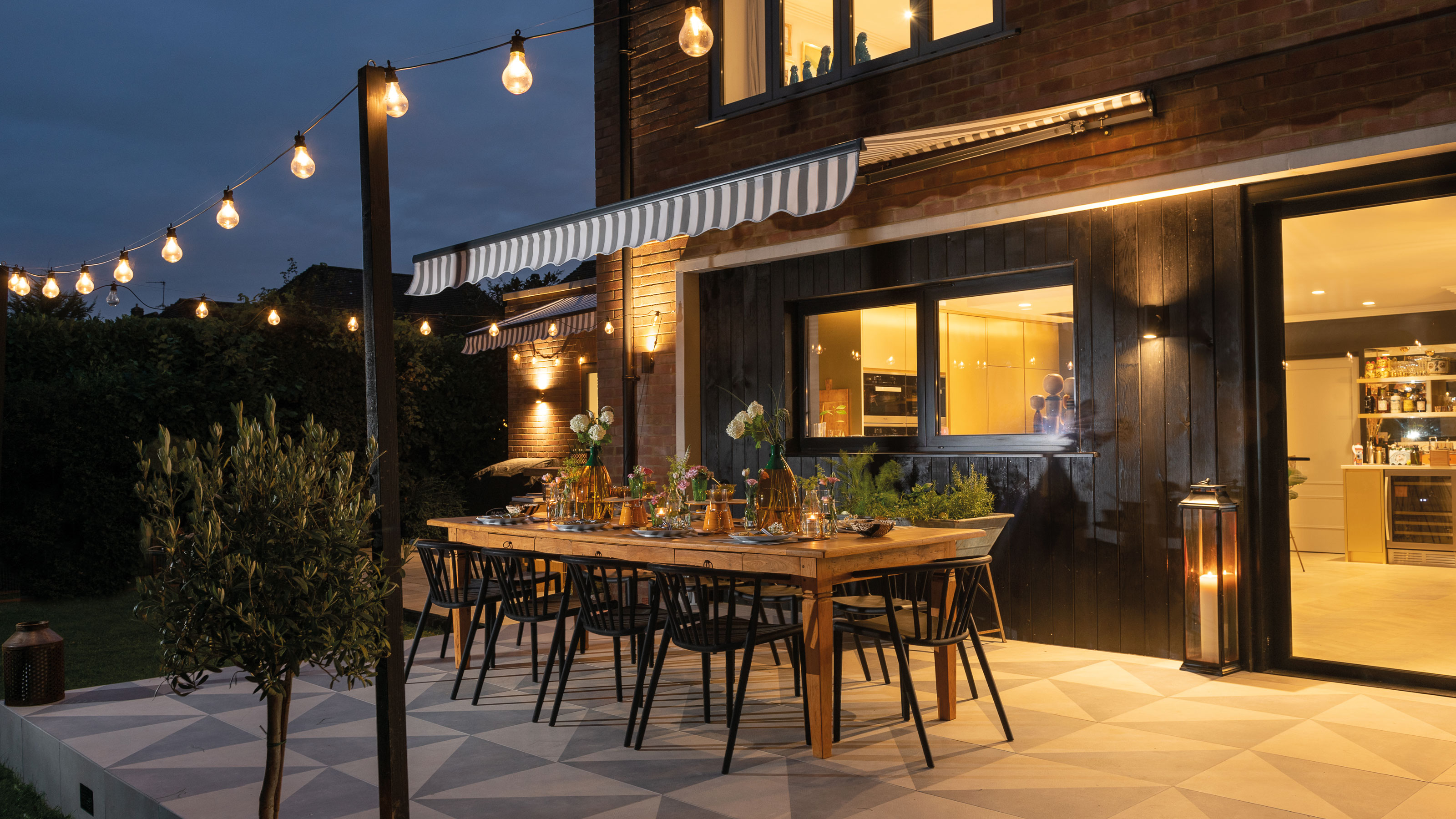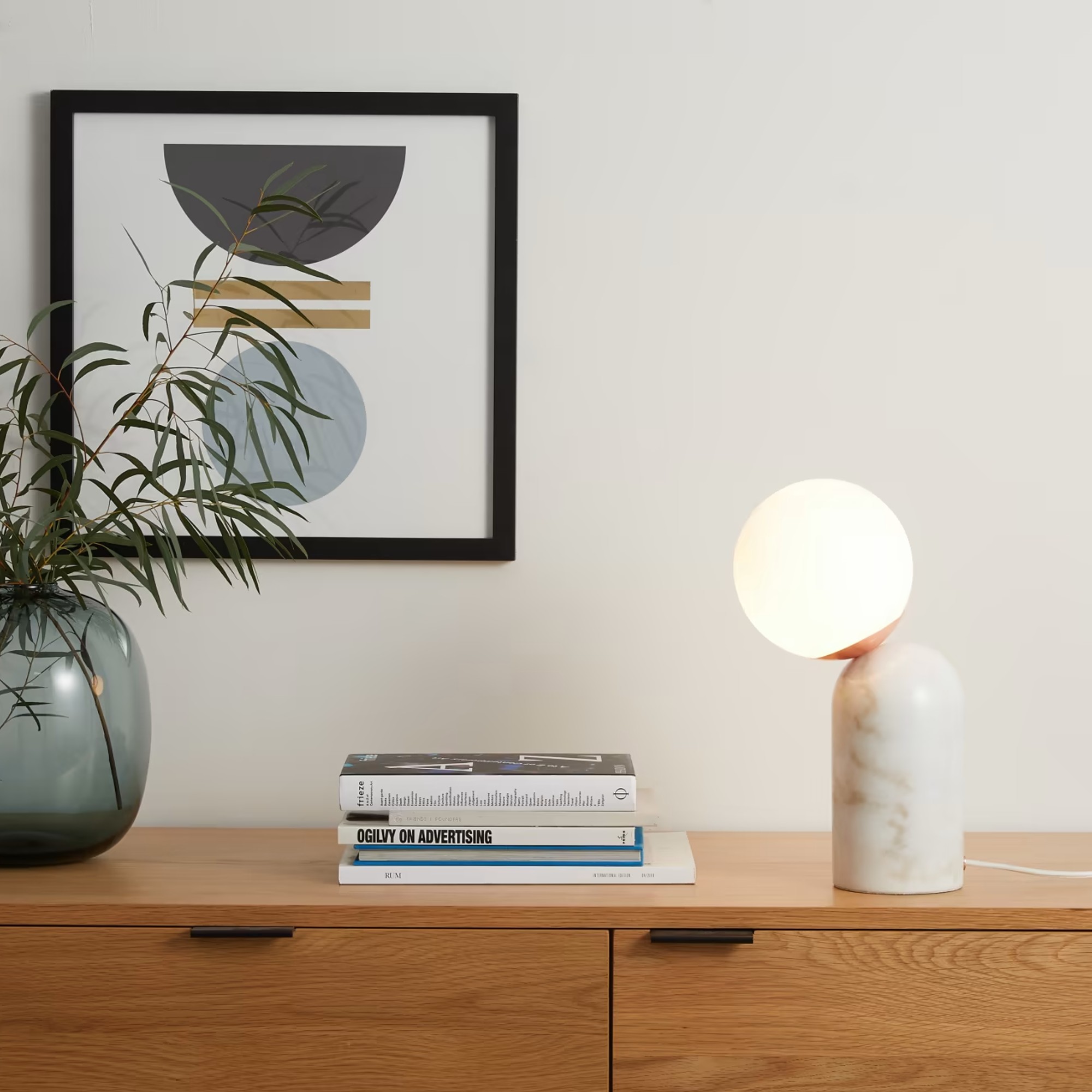Is electricity cheaper at night? Experts reveal the best time to turn on electricals
Energy suppliers separate the fact from the fiction when it comes to electricity being cheaper at night


Sign up to our newsletter for style inspiration, real homes, project and garden advice and shopping know-how
You are now subscribed
Your newsletter sign-up was successful
You'll often hear people saying that electricity is cheaper at night, but is this really the case? Every little hack helps when trying to save energy at home, so we put the question to the experts.
We turned to energy suppliers, such as Octopus Energy and Ovo Energy to find out if it's worth waiting until bedtime to put the tumble dryer on. It turns out that wholesale electricity is cheaper at night because there's less demand, however, customers are generally given a fixed rate by suppliers.
Your electricity might be cheaper at night if you're on a time-of-use tariff, but this usually means you pay more than average for your electricity during the day. If you are looking to change your energy tariff, use a price comparison website like our sister site Go.Compare.

Is electricity cheaper at night?
As we mentioned above, it all depends on the type of tariff or meter you are on (for example, Economy 7, although this is viewed as being quite archaic nowadays). Chris Shaw, CEO at Utility Bidder says that there's no clear indication that using power sources at night is cheaper.
'Some energy providers do charge differing rates across the day, with 10pm - 8am proving the time of day when demand for power is at its lowest in the UK. However, it is more common that energy suppliers will charge a flat rate,' Chris says.
'Ultimately, this means that all your utilities will be costing you as much no matter what time of the day you switch them on for use.' However, there are more eco-friendly times of day to be using electrical appliances.

A spokesperson from Octopus Energy explains that the National Grid is 'dirtiest' during the breakfast peak and dinner peak and that the dinner peak between 4pm and 7pm is when increased demand means energy must be produced from power stations.
Sign up to our newsletter for style inspiration, real homes, project and garden advice and shopping know-how
During the day, more renewable energy can be used, from solar power and wind turbines, for example. While it'll cost you the same, the energy you're using outside of this 4-7pm window will be greener.
Martin Lewis addressed this topic on his live show, The Martin Lewis Money Show Live on ITV, where he said the vast majority of people pay the same rates all the time. He encourages viewers to use electricals such as the washing machine outside of peak hours (which he says are between 4pm and 9pm). 'That helps us all with energy security,' Martin explains, 'so give it a go even if it doesn’t save you money.'
Economy 7 and Economy 10 tariffs
Economy 7 and Economy 10 tariffs offer cheaper electricity for seven or ten hours respectively during the night. But unless you use the majority of your energy at night, these tariffs aren't a good way to save money at home, as they charge you more for any energy you use in the remaining hours of the day.
It's also worth noting Economy 7 tariffs can't be used for gas power. Plus, the hours when your energy is cheaper don't change when the clocks go back, so you'd have to change the times you use your appliances to stay in line with the off-peak hours.

In November 2022, the National Grid Electricity System Operator is launching a 'demand flexibility service,' which is a scheme that will give customers money back on bills by using electricity during periods of lower demand. Similarly, Ovo Energy,has recently launched Power Move.
Coralie Frost says this will 'reward customers up to £100 for shifting energy usage to (on average) greener times of day.' Octopus Agile is a similar idea, you just need to have a smart meter. If you do try to get money back with a scheme like this, you should always be wary of the fire risks of using appliances at night.
There are lots of other money-saving swaps you can make, from using energy-saving bulbs and finding ways to dry clothes fast without a tumble dryer, to using an air fryer or slow cooker.
When are the off-peak hours?
Off-peak hours are typically between 10pm and 8am or 11pm and 7am. Octopus Energy says that wholesale electricity is most expensive during the 'dinner peak' between 4pm and 7pm.

Millie Hurst was Senior Content Editor at Ideal Home from 2020-2022, and is now Section Editor at Homes & Gardens. Before stepping into the world of interiors, she worked as a Senior SEO Editor for News UK in both London and New York. You can usually find her looking up trending terms and finding real-life budget makeovers our readers love. Millie came up with the website's daily dupes article which gives readers ways to curate a stylish home for less.